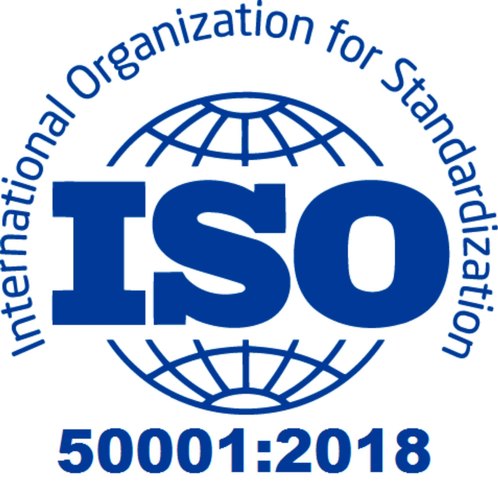ISO Certification for Energy Management

ISO certification for energy management refers to compliance with the ISO 50001 standard, which provides requirements for establishing, implementing, maintaining, and improving an energy management system (EnMS). ISO 50001 certification demonstrates an organization's commitment to improving energy performance, reducing energy consumption, and enhancing energy efficiency.
Here are key aspects of ISO Certification for Energy Management:
ISO 50001 Standard: ISO 50001 is an international standard developed by the International Organization for Standardization (ISO) that provides a framework for managing energy performance and improving energy efficiency. The standard is applicable to organizations of all sizes and industries, aiming to help organizations establish systems and processes to monitor, measure, and improve their energy performance.
Energy Management System (EnMS): ISO 50001 requires organizations to establish an EnMS, which is a set of policies, procedures, processes, and controls designed to manage energy use, consumption, and efficiency. The EnMS helps organizations identify energy-saving opportunities, implement energy-saving measures, and continuously improve energy performance.
Continuous Improvement: ISO 50001 emphasizes the importance of continuous improvement in energy management. Organizations are required to establish energy objectives, targets, and action plans, monitor and measure energy performance, and take corrective and preventive actions to improve energy efficiency and reduce energy consumption over time.
Energy Policy and Planning: ISO 50001 requires organizations to develop and implement an energy policy that reflects their commitment to improving energy performance and reducing energy consumption. Organizations are also required to establish energy planning processes to identify energy-saving opportunities and prioritize energy-saving initiatives.
Legal and Regulatory Compliance: ISO 50001 requires organizations to identify and comply with applicable legal, regulatory, and contractual requirements related to energy management and energy efficiency. Compliance with ISO 50001 helps organizations ensure that they meet legal obligations, reduce energy-related risks, and improve overall energy performance.
Measurement and Verification: ISO 50001 emphasizes the importance of measurement and verification in energy management. Organizations are required to establish procedures for monitoring, measuring, and analyzing energy performance data, as well as verifying the effectiveness of energy-saving measures and initiatives.
Employee Awareness and Training: ISO 50001 requires organizations to raise employee awareness of energy management and provide training to employees on energy-saving practices, procedures, and initiatives. Employee involvement and engagement are critical to the success of energy management efforts.
Certification Process: Organizations seeking ISO 50001 certification undergo a certification process conducted by accredited third-party certification bodies. The certification process typically involves a comprehensive assessment of the organization's EnMS, including documentation review, site visits, interviews, and performance evaluation against ISO 50001 requirements.
ISO 50001 certification is recognized globally and demonstrates an organization's commitment to improving energy performance, reducing energy consumption, and enhancing energy efficiency. It can enhance the organization's reputation, credibility, and competitiveness, while also providing assurance to stakeholders that the organization is managing energy responsibly and sustainably.
Thank you,